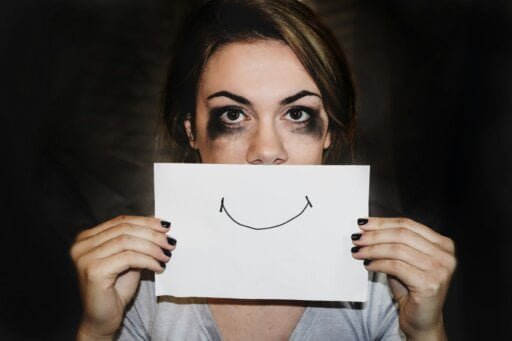Are you feeling overwhelmed by anxiety and not sure where to turn for help? Look no further because this article “Who To See For Anxiety”, will guide you in the right direction. When it comes to seeking assistance for anxiety, it’s important to know who to see for effective support and treatment. With various options available, from therapists to psychiatrists, finding the right professional can make a world of difference in managing your anxiety and reclaiming a sense of calm and well-being. Let’s explore the different professionals you can reach out to and take a step towards a happier, anxiety-free life.
Who To See For Anxiety: Primary Care Physicians
Family doctors
Family doctors, also known as general practitioners, are often the first point of contact for individuals seeking medical care for their anxiety. These physicians are trained to provide comprehensive healthcare for people of all ages, including mental health concerns. They can diagnose anxiety disorders and offer initial treatment options such as medication, lifestyle modifications, and referrals for therapy or specialized care if needed. Family doctors can also monitor the overall health of individuals with anxiety and coordinate care with other healthcare professionals to ensure comprehensive and holistic treatment.
Internists
Internists, or internal medicine physicians, are doctors who specialize in adult healthcare. They are equipped to diagnose and manage anxiety disorders in adult patients, providing both medical and psychological approaches to treatment. Internists may prescribe medications to alleviate symptoms and monitor their effectiveness. Additionally, they can refer patients to therapists, psychiatrists, or other specialized mental health professionals for further evaluation and treatment. Internists play a crucial role in supporting individuals with anxiety by addressing both their physical and mental well-being.
Pediatricians
Pediatricians are primary care doctors who specialize in the physical, emotional, and behavioral well-being of children. Children and adolescents can also experience anxiety disorders, and pediatricians are trained to identify and address these concerns. They can offer guidance and support to parents and caregivers, provide counseling or behavior management strategies for children with anxiety, and prescribe appropriate medication if necessary. Pediatricians may also collaborate with schools and mental health professionals to ensure a comprehensive and coordinated approach to managing anxiety in children.
Who To See For Anxiety: Psychiatrists
General psychiatrists
General psychiatrists are medical doctors who specialize in the diagnosis, treatment, and prevention of mental illnesses. They play a vital role in the management of anxiety disorders by conducting thorough evaluations, prescribing medications, and providing psychotherapy. General psychiatrists have extensive knowledge of various mental health conditions, including anxiety, and can tailor treatment plans to meet individual needs. They often work closely with other healthcare providers to ensure a holistic approach to care, addressing both the biological and psychological aspects of anxiety.
Child and adolescent psychiatrists
Child and adolescent psychiatrists are specialized psychiatrists who focus on diagnosing and treating mental health conditions in young individuals. They have advanced training in understanding the unique needs and developmental stages of children and teenagers. Child and adolescent psychiatrists can provide comprehensive evaluations to assess anxiety symptoms and develop personalized treatment plans. They are skilled in using medication management and a range of therapeutic approaches that are suitable for younger patients, including play therapy and family therapy. Collaborating with parents, schools, and other healthcare professionals, child and adolescent psychiatrists ensure the optimal well-being of children and teenagers with anxiety disorders.
Geriatric psychiatrists
Geriatric psychiatrists specialize in the mental health needs of older adults. Anxiety can affect individuals as they age, often co-occurring with other age-related conditions. Geriatric psychiatrists are experienced in addressing the specific challenges and complexities of anxiety disorders in older adults. They evaluate symptoms, prescribe appropriate medications, and provide supportive therapy tailored to meet the unique needs of older patients. Additionally, geriatric psychiatrists collaborate with other healthcare providers to ensure comprehensive care and enhance the overall quality of life for individuals experiencing anxiety in later stages of life.
Who To See For Anxiety: Psychologists
Clinical psychologists
Clinical psychologists are mental health professionals who specialize in assessing, diagnosing, and treating a wide range of mental health conditions, including anxiety disorders. They utilize evidence-based therapeutic techniques to help individuals manage anxiety symptoms and develop coping strategies. Clinical psychologists may conduct individual therapy sessions, group therapy, or family therapy depending on the individual’s needs. They often work collaboratively with other healthcare providers to provide a holistic approach to anxiety treatment. Through their expertise, clinical psychologists empower individuals to understand and manage their anxiety effectively.
Counseling psychologists
Counseling psychologists focus on helping individuals improve their overall well-being by addressing mental, emotional, and interpersonal challenges. They play a crucial role in the treatment of anxiety disorders, providing therapy that aims to alleviate symptoms and enhance individuals’ coping skills. Counseling psychologists may implement various therapeutic approaches, such as cognitive-behavioral therapy (CBT) or mindfulness-based interventions, tailored to the needs and preferences of their clients. By fostering a supportive and empathetic environment, counseling psychologists empower individuals to navigate the challenges associated with anxiety and live fulfilling lives.
School psychologists
School psychologists provide mental health support within educational settings, helping students cope with academic, social, and emotional challenges. They can identify and intervene in anxiety disorders that impact students’ well-being and academic performance. School psychologists collaborate with educators, parents, and other mental health professionals to develop effective strategies and interventions for students with anxiety. They may provide individual counseling, conduct assessments, offer workshops on stress management, and facilitate group therapy sessions. School psychologists are an essential resource for students, promoting mental wellness and creating a supportive learning environment.
Who To See For Anxiety: Therapists
Licensed Professional Counselors (LPC)
Licensed Professional Counselors (LPC) are mental health professionals trained to provide counseling and psychotherapy to individuals experiencing anxiety. They specialize in helping individuals explore and process their emotions, thoughts, and behaviors to develop strategies for managing anxiety symptoms. LPCs may employ various therapeutic techniques, including talk therapy, cognitive-behavioral therapy (CBT), or interpersonal therapy, tailored to the individual’s needs and preferences. They offer a safe, non-judgmental space for individuals to share their concerns and work collaboratively to reduce anxiety and improve overall well-being.
Licensed Clinical Social Workers (LCSW)
Licensed Clinical Social Workers (LCSW) are trained mental health professionals who can offer support and treatment for anxiety disorders. They provide counseling services, helping individuals address the emotional and social factors contributing to their anxiety. LCSWs use a holistic approach, considering social, family, and environmental aspects when developing treatment plans. They may also connect individuals with community resources, support groups, and additional services to complement the therapeutic process. Through their expertise, LCSWs empower individuals to navigate anxiety and build resilience in various aspects of their lives.
Marriage and Family Therapists (MFT)
Marriage and Family Therapists (MFT) specialize in helping individuals, couples, and families improve their relationships and overall mental well-being. They can play a crucial role in addressing anxiety disorders that impact family dynamics and interpersonal relationships. MFTs provide therapy that focuses on improving communication, managing stress, and resolving conflicts, thereby reducing anxiety within the context of relationships. They recognize the interconnectedness of individual well-being and relational dynamics, contributing to a comprehensive approach to anxiety treatment. By fostering healthy relationships, MFTs contribute to the overall support system in managing anxiety effectively.

Psychiatric Nurse Practitioners
Psychiatric Nurse Practitioners (PNPs) are advanced practice nurses specializing in psychiatric care. They are equipped to diagnose and treat anxiety disorders, including prescribing medication and providing therapy. PNPs have a holistic approach to mental health and are highly trained in assessing individuals’ biopsychosocial needs. They work collaboratively with patients, taking into account their individual circumstances, preferences, and goals, to develop personalized treatment plans. The expertise of psychiatric nurse practitioners can greatly benefit those seeking comprehensive care for anxiety, providing a continuum of support throughout the treatment process.
Who To See For Anxiety: Community Mental Health Centers
Community Mental Health Centers are facilities that offer a wide range of mental health services to individuals in the community. These centers often have multidisciplinary teams of mental health professionals who specialize in various aspects of care. They provide diagnostic assessments, therapy sessions, medication management, case management, and support groups for individuals with anxiety. Community Mental Health Centers aim to improve accessibility and affordability of mental health services, making them a valuable resource for individuals seeking comprehensive and affordable care for anxiety disorders within their communities.

Who To See For Anxiety: Specialized Anxiety Centers
Specialized Anxiety Centers are treatment centers dedicated to providing focused and comprehensive care for individuals with anxiety disorders. These centers often have teams of specialized clinicians and researchers who are highly knowledgeable about anxiety and its treatment. They offer evidence-based therapies, such as cognitive-behavioral therapy (CBT) and exposure therapy, tailored specifically for anxiety disorders. Specialized Anxiety Centers may also conduct research, contributing to advancements in the understanding and treatment of anxiety. These centers provide individuals with anxiety a specialized and intensive approach to care, promoting long-lasting recovery.
Support Groups
Support groups are gatherings where individuals who experience similar challenges, such as anxiety, come together to share their experiences, provide mutual support, and learn from one another. These groups can be facilitated by mental health professionals or organized by community organizations or advocacy groups. Support groups allow individuals to connect with others who understand their struggles and provide a sense of belonging and validation. Through sharing personal stories, discussing coping strategies, and offering encouragement, support groups can play a significant role in reducing anxiety and promoting emotional well-being.
Alternative Practitioners
Alternative practitioners encompass a range of healthcare professionals who offer non-traditional approaches to anxiety management. These may include naturopaths, acupuncturists, herbalists, or homeopaths. While scientific evidence for the effectiveness of alternative therapies in treating anxiety may vary, some individuals find these approaches helpful in combination with traditional treatment or as an alternative option. It is important to consult with medical professionals and do thorough research when considering alternative practitioners, ensuring their qualifications and expertise align with individual needs and safety concerns.
Who To See For Anxiety: Online Therapy Platforms
Online therapy platforms provide convenient and accessible options for individuals seeking therapy for anxiety. These platforms connect individuals with licensed therapists through video calls, phone calls, or text-based messaging. Online therapy offers flexibility in scheduling and reduces barriers to access, particularly for those with limited mobility, living in remote areas, or preferring the privacy of home. Many online therapy platforms ensure confidentiality and adhere to ethical guidelines to ensure the quality and effectiveness of therapy. Online therapy can be a convenient and effective option for individuals seeking professional support and guidance for managing anxiety.
In conclusion: Who To See For Anxiety
There are numerous healthcare professionals and resources available to support individuals experiencing anxiety. Primary care physicians, psychiatrists, psychologists, therapists, specialized anxiety centers, and online therapy platforms offer a diverse range of services tailored to the specific needs of individuals with anxiety disorders. Whether seeking medical interventions, therapy, support groups, or alternative approaches, there is a comprehensive network of professionals and resources waiting to help individuals navigate their anxiety and regain control of their lives. Remember, you are not alone, and support is always available.
Frequently Asked Questions:
- What doctor should I see for anxiety? You can start with a general practitioner who can assess your symptoms. They may refer you to a mental health specialist like a psychiatrist or psychologist for further evaluation and treatment.
- Should I see a therapist or psychologist for anxiety? Both therapists and psychologists can help with anxiety. A therapist provides counseling, while a psychologist may conduct assessments and offer therapeutic interventions.
- Who can treat me for anxiety? General practitioners, psychiatrists, psychologists, and licensed therapists are professionals who can treat anxiety. Choose based on your needs and the severity of your symptoms.
- Who do you refer to for anxiety? If your symptoms are persistent, a general practitioner may refer you to a mental health specialist, such as a psychiatrist or psychologist, for a comprehensive evaluation.
- How do I stop feeling anxious? Techniques such as deep breathing, mindfulness, and therapy can help manage anxiety. Identifying triggers and developing coping strategies are crucial for long-term relief.
- How to calm anxiety? Calm anxiety through deep breathing, mindfulness, regular exercise, and establishing a supportive routine. Professional help from therapists or psychiatrists may also be beneficial.
- How I healed my anxiety without drugs? Healing anxiety without drugs involves therapy, lifestyle changes, and mindfulness practices. Developing a holistic approach, guided by a mental health professional, contributes to effective management.
- How long does anxiety last? The duration of anxiety varies. If it persists and significantly impacts your life, seek professional help for an accurate diagnosis and appropriate treatment.
- How do I know if I have anxiety? Symptoms include excessive worry, restlessness, muscle tension, and difficulty concentrating. If these persist, consult a healthcare professional for an accurate diagnosis.
- How do doctors test for anxiety? Doctors assess anxiety through interviews, questionnaires, and discussions about symptoms and their impact on daily life. There isn’t a specific blood test for anxiety.
- What does Xanax do? Xanax is a medication that can help manage anxiety symptoms by enhancing the effects of a neurotransmitter in the brain, producing a calming effect.
- When should I see a psychiatrist for anxiety? Consider seeing a psychiatrist if your anxiety is severe, persistent, or significantly interferes with daily life. They can provide specialized assessments and medication management.
- What triggers anxiety? Triggers vary but may include stress, life changes, trauma, or a combination of factors. Identifying triggers is crucial for effective anxiety management.
- What do psychiatrists do for anxiety? Psychiatrists assess, diagnose, and treat mental health conditions, including anxiety. Treatment may involve therapy, medication, or a combination tailored to individual needs.
- What is the 3 3 3 rule for anxiety? The 3-3-3 rule involves acknowledging three things you see, hear, and feel during an anxiety episode, helping ground you in the present moment.
- How I cured my anxiety with a vitamin? While some vitamins may support mental health, curing anxiety is a complex process. Consult with healthcare professionals for personalized advice on supplements and overall management.
- Why am I so anxious all the time? Chronic anxiety can be influenced by various factors, including genetics, environment, and life experiences. Seeking professional help is crucial for understanding and managing the underlying causes.
- Can anxiety go away by itself? While some people may experience spontaneous relief, persistent anxiety often requires intervention. Seeking professional help increases the likelihood of effective management.
- Will I ever get rid of anxiety? Complete elimination may not be guaranteed, but effective management is possible through therapy, medication, and lifestyle changes.
- Why won’t my anxiety go away? Persistent anxiety may be influenced by various factors. Consult with a mental health professional to identify and address the underlying causes.
- Can anxiety affect your hair? Extreme stress and anxiety may contribute to hair loss. Managing anxiety and stress can positively impact overall well-being, including hair health.
- How do I know if my anxiety is serious? If anxiety significantly impacts your daily life, relationships, or physical health, it is considered serious. Seeking professional help is crucial for appropriate management.
- Is my anxiety normal or not? If anxiety interferes with daily life, relationships, or overall well-being, it may be more than normal stress. Professional assessment can provide clarity.
- Can a blood test show anxiety? There isn’t a specific blood test for anxiety. Diagnosis is based on discussions about symptoms, their impact, and may involve psychological assessments.
- Can I tell my doctor I have anxiety? Yes, open communication with your doctor about anxiety symptoms is essential. They can provide guidance on next steps, including referrals to mental health specialists.
- Can you be hospitalized for anxiety? In severe cases where anxiety poses immediate risks, hospitalization may be considered. It’s typically a last resort after other interventions are explored.
- What anxiety feels like? Anxiety can manifest as excessive worry, physical tension, restlessness, and other symptoms. Everyone’s experience is unique, and a healthcare professional can help you understand and manage it.
- Why does water help with anxiety? Staying hydrated is essential for overall health, which can indirectly impact mental well-being. However, water alone is not a standalone treatment for anxiety.
- Why is anxiety worse at night? Nighttime anxiety may be influenced by factors such as hormonal fluctuations, fatigue, or fewer distractions. Identifying triggers and implementing relaxation techniques can help manage nighttime anxiety.
*Source: Anxiety

